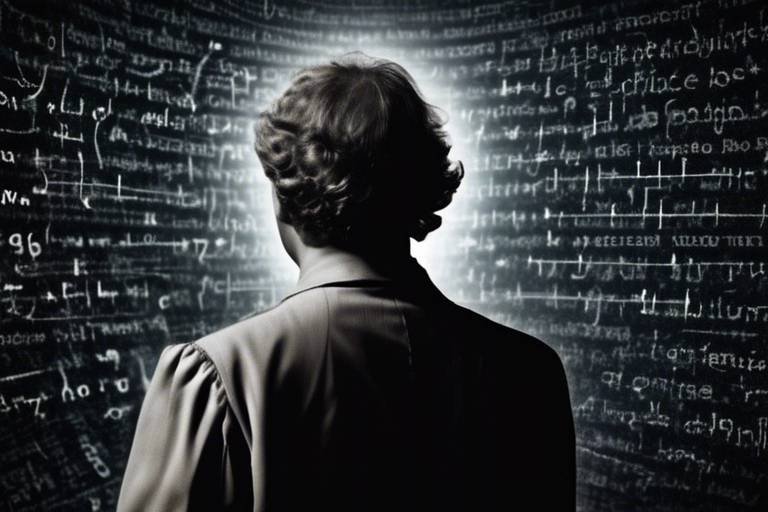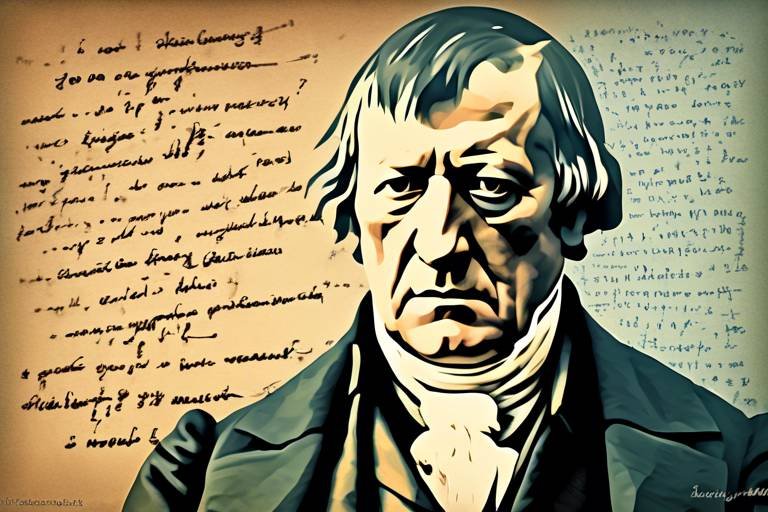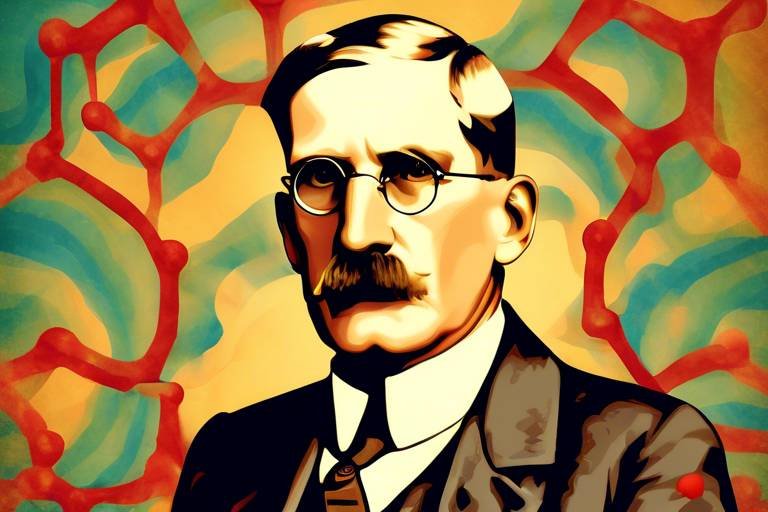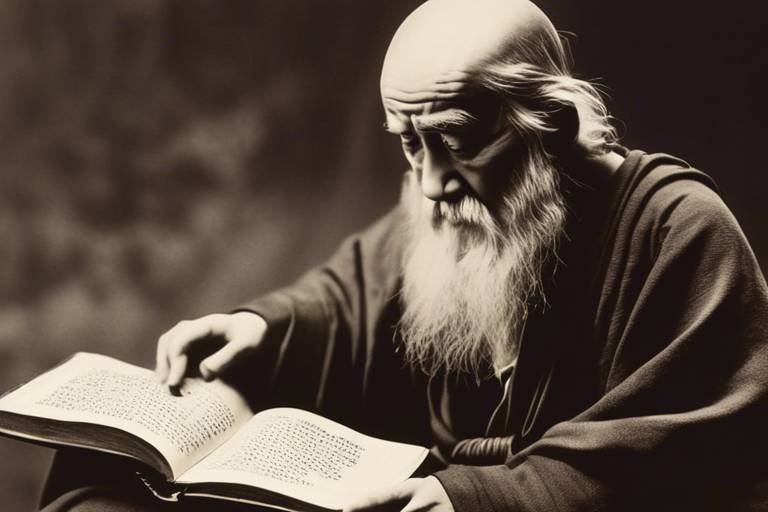The Role of Intuition in Philosophy and Science
Intuition, that mysterious inner voice or gut feeling, has a profound impact on the realms of philosophy and science. It often serves as a catalyst for thought and discovery, guiding philosophers to ponder the essence of knowledge and helping scientists to formulate groundbreaking hypotheses. But what exactly is intuition, and how does it interact with our rational mind? In this article, we'll explore the significance of intuition in these two fields, its historical context, and the delicate balance it strikes with rational analysis.
Imagine you're trying to solve a complex puzzle. You can either methodically piece together each part or rely on that sudden flash of insight that tells you where the next piece fits. This duality of thought—intuitive versus analytical—plays a crucial role in how we approach both philosophical questions and scientific inquiries. While intuition can sometimes lead us to profound truths, it can also mislead us if we rely on it too heavily. So, how do these two modes of thought coexist and influence each other? Let's dive deeper into the fascinating world of intuition.
Intuition isn't just some whimsical notion; it's deeply rooted in our psychology. It's often described as an immediate understanding or insight that occurs without the need for conscious reasoning. This phenomenon can be likened to a mental shortcut, where our brain processes vast amounts of information at lightning speed, allowing us to arrive at conclusions almost instantaneously. However, this rapid processing can sometimes lead to biases or errors in judgment, especially when we don't take the time to analyze our thoughts critically.
Throughout history, intuition has been a subject of much debate among philosophers and scientists alike. Key figures such as Plato and Aristotle laid the groundwork for understanding intuitive thought, each presenting unique perspectives that continue to influence contemporary discourse. Plato, for instance, believed that intuition could unlock access to higher truths through his Theory of Forms. In contrast, Aristotle emphasized empirical observation, cautioning against the limitations of intuition in acquiring knowledge. This historical backdrop sets the stage for modern discussions on the legitimacy and role of intuition in both philosophical and scientific contexts.
As we explore the interplay between intuition and rationality, it becomes clear that both are essential to our understanding of the world. The scientific method, which champions empirical evidence, also recognizes the role of intuition in hypothesis formation. Many scientific breakthroughs, from the theory of relativity to the discovery of penicillin, have been attributed to those "aha" moments of intuitive insight. However, it's crucial to acknowledge the limitations of intuition as well. Over-reliance on gut feelings can lead to flawed conclusions, especially in complex scientific research where data and analysis should take precedence.
In conclusion, the relationship between intuition and rationality is intricate and multifaceted. Finding a balance between these two approaches is vital for effective decision-making, whether in philosophy, science, or everyday life. By understanding the dynamics of intuition and rationality, we can enhance our ability to navigate complex problems and make informed choices. As we continue to explore these themes, we invite you to reflect on your own experiences with intuition and how it has shaped your understanding of the world.
- What is intuition? Intuition is an immediate understanding or insight that occurs without the need for conscious reasoning.
- How does intuition influence scientific discovery? Intuition can guide hypothesis formation and lead to breakthroughs, although it should be balanced with empirical evidence.
- What are the limitations of intuition? Intuition can sometimes lead to biases or errors in judgment, particularly if not supported by rational analysis.
- How can one balance intuition and rationality? By recognizing the strengths and weaknesses of both modes of thought, individuals can integrate intuitive insights with logical reasoning for better decision-making.

Understanding Intuition
Intuition is often described as that little voice inside your head that provides immediate understanding or insight without the need for conscious reasoning. It's like a gut feeling that guides you when you’re faced with a decision or a problem. But what exactly is going on in our minds when we experience this phenomenon? To grasp the essence of intuition, we must first delve into its psychological basis and how it operates in our daily lives.
At its core, intuition is a complex interplay of cognitive processes that tap into our past experiences, emotions, and knowledge. Think of it as a mental shortcut; it allows us to make quick judgments without the exhaustive analysis that typically accompanies rational thought. For instance, when you meet someone for the first time and instantly feel a sense of trust or distrust, that’s intuition at work. It’s your brain drawing on a myriad of subtle cues and past experiences, often without you even realizing it.
Psychologists define intuition as a form of non-conscious reasoning. It operates below the level of awareness, often making it difficult to articulate why we feel a certain way about something. This subconscious processing can be incredibly powerful, leading to insights that are just as valid as those reached through rigorous logical reasoning. However, this does not mean intuition is infallible. It can be influenced by biases and emotions, leading us astray if we rely on it too heavily.
To better understand intuition, let’s break down its characteristics:
- Immediate Insight: Intuition often arises suddenly, providing clarity in situations where logic may take longer.
- Subconscious Processing: It draws from our accumulated experiences and knowledge, often without our conscious awareness.
- Emotionally Driven: Intuitive feelings can be influenced by our emotional state, making them subjective.
- Quick Decision-Making: It enables rapid responses in situations that require swift action.
In addition to these characteristics, intuition can be seen as a double-edged sword. While it can lead to brilliant insights and creative solutions, it can also result in errors if we don't balance it with rational analysis. For example, a scientist may have an intuitive hunch about a hypothesis, but without empirical evidence to back it up, that hunch remains just a guess. Therefore, understanding the nature of intuition is crucial, especially in fields like philosophy and science where both intuitive insights and logical reasoning play significant roles.
Ultimately, intuition is not merely a mystical force; it's a cognitive tool shaped by our experiences and emotions. Acknowledging its power and limitations allows us to harness it effectively, blending it with rational thought to navigate the complexities of decision-making in our lives.

Historical Perspectives on Intuition
Throughout the ages, the concept of intuition has sparked intriguing debates among philosophers and scientists alike. From ancient times to modern discussions, the role of intuitive thought has evolved, yet its significance remains undeniable. Ancient thinkers like Plato and Aristotle laid the groundwork for understanding intuition, each offering distinct perspectives that have influenced subsequent philosophical discourse.
In the realm of ancient philosophy, intuition was not merely an abstract notion; it was a vital component of knowledge acquisition. Plato, for instance, believed in the existence of a higher realm of truths, which he termed the Theory of Forms. For Plato, intuition was a means to access these eternal truths, suggesting that our innate understanding could transcend the physical world. This notion implies that intuition is not just a fleeting thought but a profound connection to a deeper reality.
On the other hand, Aristotle took a different stance. He championed an empirical approach to knowledge, emphasizing observation and experience over abstract reasoning. Aristotle viewed intuition as a less reliable source of knowledge, often cautioning against its potential pitfalls. He argued that while intuitive insights might spark ideas, they should always be tested against empirical evidence to avoid errors in judgment. This contrast between Plato's idealism and Aristotle's empiricism set the stage for ongoing debates about the validity and reliability of intuitive knowledge.
As we delve deeper into the history of intuition, several key figures emerge, each contributing unique insights:
- Plato: Advocated for the significance of intuition in accessing higher truths through his Theory of Forms.
- Aristotle: Emphasized empirical observation and the limitations of intuition in acquiring knowledge.
- Descartes: Introduced the idea of methodological skepticism, questioning the reliability of intuitive judgments.
- Kant: Suggested that intuition plays a role in the synthesis of experiences, bridging the gap between sensory input and rational thought.
Moving into the modern era, intuition continued to be a point of contention. Philosophers began to explore the legitimacy of intuitive knowledge, often contrasting it with rationalism. Figures like René Descartes introduced skepticism towards intuitive insights, arguing that they could lead to false conclusions if not scrutinized rigorously. In contrast, Immanuel Kant proposed that intuition could serve as a necessary component in the synthesis of experiences, suggesting that it could coexist with rational thought in a complementary manner.
The interplay between intuition and rationality has sparked a wealth of philosophical inquiry, leading to the recognition that both modes of thought can be valuable in their own right. As we navigate through history, it becomes clear that the understanding of intuition is not static; rather, it adapts and evolves, reflecting the complexities of human thought and experience.
In summary, the historical perspectives on intuition reveal a rich tapestry of ideas that continue to influence contemporary discussions in both philosophy and science. From ancient ideals to modern skepticism, the debate surrounding intuition remains a vital area of exploration, prompting us to question how we come to know and understand the world around us.
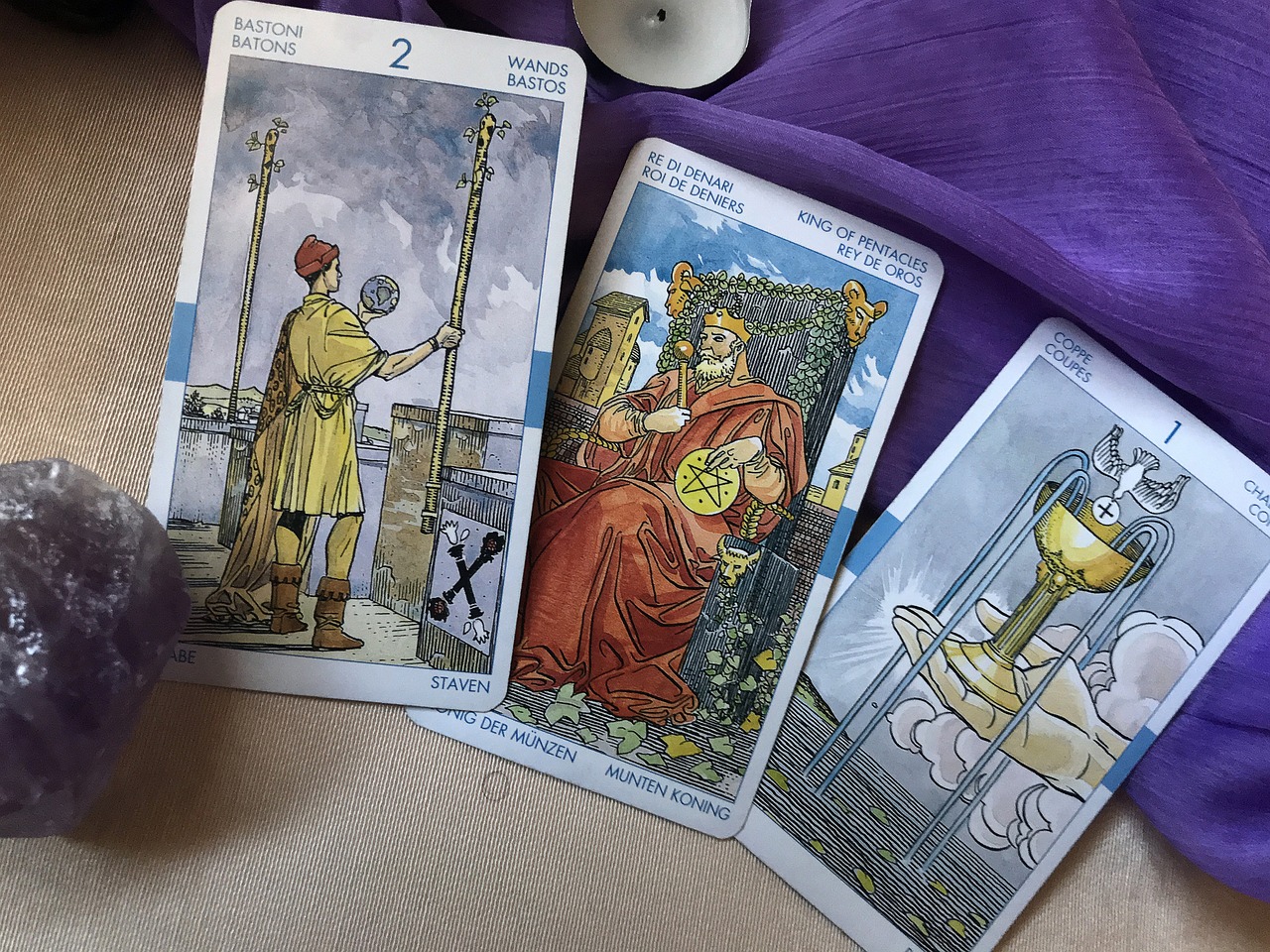
Intuition in Ancient Philosophy
When we dive into the depths of ancient philosophy, we encounter a fascinating landscape where intuition plays a pivotal role. Philosophers like Plato and Aristotle not only shaped the intellectual discourse of their time but also laid the groundwork for how we perceive intuition today. Their perspectives offer us a glimpse into the ancient mind's understanding of knowledge and reality.
Plato, for instance, believed that intuition was a gateway to higher truths. His theory of the Forms posited that beyond our tangible world lies a realm of perfect, abstract ideals. According to Plato, our intuitive insights allow us to grasp these Forms, providing a direct connection to ultimate knowledge. Imagine standing at the edge of a vast ocean, where the waves represent the physical world, and the depths below symbolize the Forms. Intuition is like a diving bell that enables us to explore those deeper truths that are otherwise hidden from sight.
On the other hand, Aristotle took a different approach. He emphasized empirical observation and the importance of sensory experience in acquiring knowledge. For Aristotle, intuition was not a reliable source of understanding; instead, he believed that knowledge should be built upon observable facts and logical reasoning. He viewed intuition as a tool that could lead to conclusions but cautioned against relying on it too heavily, as it could easily mislead. In essence, Aristotle’s perspective can be likened to a scientist in a lab, meticulously measuring and testing before drawing conclusions, rather than jumping to conclusions based on a hunch.
The contrasting views of these two philosophers highlight a fundamental tension in ancient thought regarding the nature of knowledge. While Plato championed intuition as a means to access eternal truths, Aristotle grounded knowledge in the physical world, advocating for a more cautious approach. This dichotomy set the stage for ongoing debates in philosophy, influencing how subsequent thinkers would grapple with the roles of intuition and reason.
To summarize, the ancient philosophical discourse surrounding intuition reveals a rich tapestry of ideas that still resonate today. While Plato's vision encourages us to trust our inner insights, Aristotle's caution reminds us of the importance of empirical evidence. Together, they create a dialogue that invites us to explore the balance between intuition and rationality, a theme that continues to be relevant in both philosophy and science.
- What is intuition in philosophy? Intuition in philosophy refers to the ability to understand something instinctively, without the need for conscious reasoning. It is often seen as a pathway to deeper truths.
- How did Plato view intuition? Plato viewed intuition as a means to access the Forms, or ideal truths, suggesting that it allows individuals to grasp higher knowledge beyond the physical world.
- What was Aristotle's stance on intuition? Aristotle believed that while intuition could provide insights, it should not be the sole basis for knowledge. He emphasized the importance of empirical observation and logical reasoning.
- Why is the balance between intuition and rationality important? Balancing intuition and rationality is crucial for effective decision-making and understanding complex issues, as both approaches offer unique insights and perspectives.

Plato's Theory of Forms
Plato's Theory of Forms is a fascinating concept that delves into the nature of reality and knowledge. According to Plato, the physical world we perceive through our senses is merely a shadow of a higher, unchanging reality composed of abstract Forms or Ideas. These Forms represent the true essence of things, and they exist independently of the material world. In this context, intuition plays a crucial role, as it is through intuitive insight that individuals can grasp these higher truths. Plato believed that our souls, having once existed in the realm of Forms, possess an innate understanding of these ideal Forms. This innate knowledge can be accessed through a process of recollection, where we intuitively recognize the Forms that correspond to the objects and experiences in our everyday lives.
To illustrate this concept, consider the Form of Beauty. While we may encounter beautiful objects in the world, such as a stunning sunset or a magnificent painting, these are merely imperfect representations of the ideal Form of Beauty. Through intuition, we can appreciate and understand what beauty truly is, beyond its physical manifestations. Plato argued that philosophers, through rigorous thinking and intuitive insight, could ascend from the world of appearances to the world of Forms, thereby attaining true knowledge. This journey is not just intellectual; it is deeply intuitive, as it requires a kind of inner vision that transcends empirical observation.
However, Plato's emphasis on intuition and the existence of Forms also raises questions about the nature of knowledge itself. If intuition allows us to access these higher truths, what does that mean for empirical knowledge? Can we trust our intuitions to lead us to the truth, or are they merely subjective feelings that can misguide us? These questions have sparked extensive debates among philosophers, leading to various interpretations of Plato's ideas. Some argue that intuition is a reliable source of knowledge, while others caution against its potential pitfalls. Ultimately, Plato's Theory of Forms invites us to reflect on the interplay between intuition and rational thought, challenging us to consider how we come to know and understand the world around us.
In summary, Plato's Theory of Forms illustrates the profound role of intuition in the quest for knowledge. It suggests that by tapping into our intuitive understanding, we can access a deeper reality that transcends the limitations of our sensory experiences. This concept not only enriches philosophical discourse but also influences how we approach scientific inquiry and rational analysis. As we continue to explore the relationship between intuition and knowledge, Plato's insights remain relevant, reminding us that the journey to understanding is as much about intuition as it is about reason.

Aristotle's Empirical Approach
Aristotle, a towering figure in ancient philosophy, took a markedly different stance on the nature of knowledge compared to his mentor, Plato. While Plato emphasized the existence of abstract Forms that could be grasped through intuition, Aristotle grounded his philosophy in the tangible world. He believed that understanding arises from empirical observation and experience, arguing that knowledge is not merely an innate insight but a product of careful study and analysis.
For Aristotle, the process of acquiring knowledge begins with the senses. He posited that our understanding of reality is built upon our sensory experiences, which then lead to the formation of concepts. This approach is often summarized in his famous dictum: "All men by nature desire to know." In essence, Aristotle viewed intuition as a byproduct of a thorough engagement with the world, rather than a standalone source of truth. He believed that intuitive thoughts must be tested against observable phenomena to ensure their validity.
Aristotle's empirical method can be broken down into several key principles:
- Observation: Aristotle emphasized the importance of observing the natural world. He meticulously studied various forms of life, documenting his findings in works such as Historia Animalium.
- Classification: He sought to categorize knowledge based on empirical evidence, laying the groundwork for future scientific classification systems.
- Induction: Aristotle advocated for inductive reasoning, where general principles are derived from specific observations, contrasting sharply with the deductive reasoning favored by Plato.
This empirical approach led Aristotle to develop a method of inquiry that prioritized rational analysis over mere intuition. He believed that while intuition could provide initial insights, it was essential to validate these insights through systematic investigation. For instance, Aristotle's studies of biology not only relied on his observations but also on experiments and dissections, which were groundbreaking for his time. This methodical scrutiny allowed him to challenge existing ideas and refine his understanding of the natural world.
Despite his emphasis on empirical evidence, Aristotle did not completely dismiss intuition. He acknowledged that intuitive insights could serve as a starting point for inquiry. However, he maintained that these insights must always be corroborated by evidence to be deemed reliable. This balancing act between intuition and empirical observation is a hallmark of Aristotle's philosophy and has influenced countless fields, from natural sciences to ethics.
In conclusion, Aristotle's empirical approach marks a significant departure from Platonic thought, advocating for a knowledge system rooted in the observable world. His legacy continues to resonate today, reminding us that while intuition can spark ideas, it is the rigorous examination of those ideas that leads to true understanding.
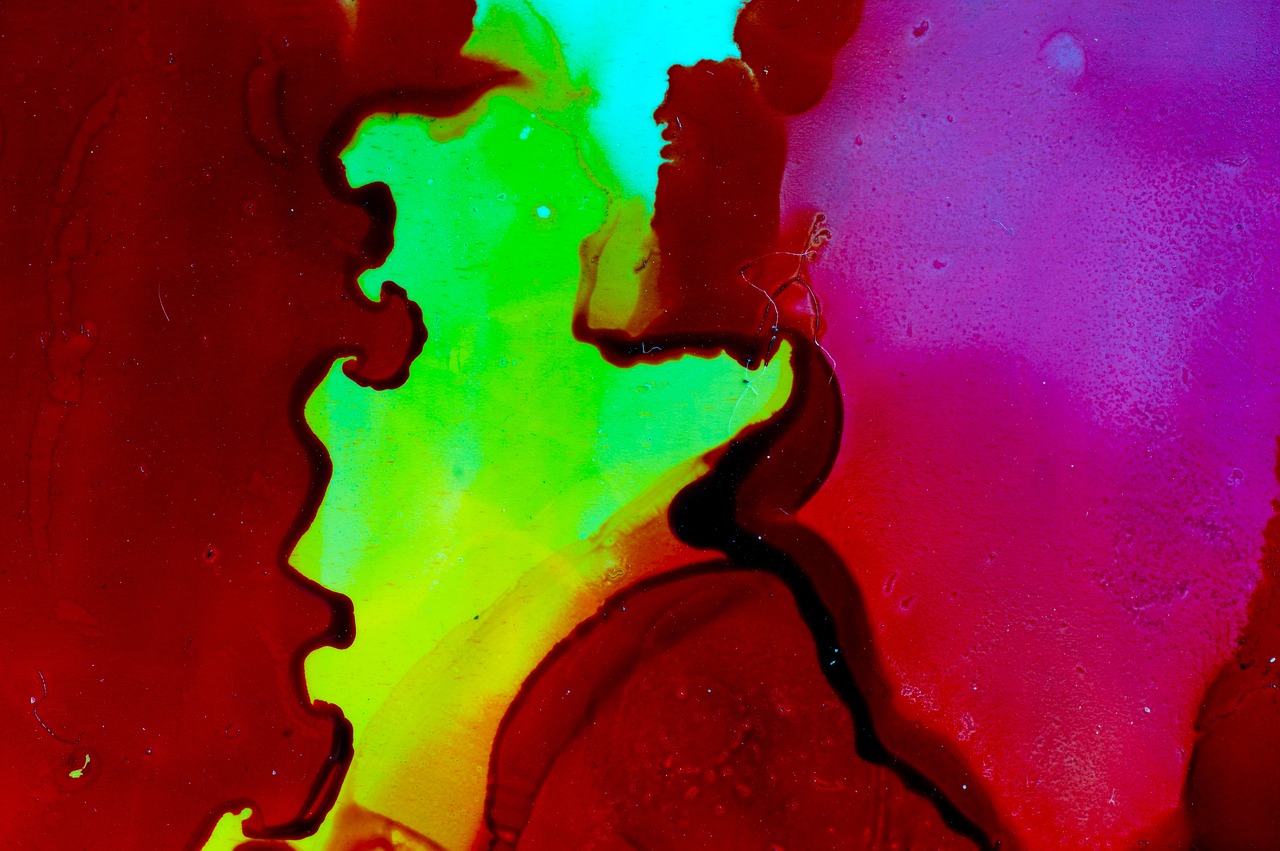
Intuition in Modern Philosophy
Modern philosophy has taken a fascinating turn when it comes to understanding intuition. Unlike the ancient philosophers who often viewed intuition as a straightforward path to knowledge, contemporary thinkers have engaged in a deeper exploration of its complexities. The debates surrounding intuition today often juxtapose it with rationalism, creating a rich tapestry of ideas that challenge our conventional understanding of how we know what we know.
One of the most intriguing aspects of modern philosophical discourse is the way intuition is viewed as both a valuable insight and a potential source of error. For instance, philosophers like Immanuel Kant have argued that while intuition can provide immediate understanding, it must be tempered with rational thought to avoid misguided conclusions. Kant believed that our intuitions are shaped by our experiences, which means they can be subjective and, at times, misleading. This raises an important question: Can we trust our intuitions, or do they lead us astray?
Furthermore, the debate has expanded into the realms of cognitive science and psychology, where researchers examine how intuition operates within the human mind. Studies have shown that intuition often arises from subconscious processing, allowing us to make quick judgments without deliberate reasoning. This has led to a growing recognition of the dual-process theory, which posits that we have two systems of thought: one that is fast, intuitive, and emotional, and another that is slow, deliberate, and logical. The interplay between these systems is crucial in understanding how we navigate complex philosophical questions.
Modern philosophers also grapple with the implications of intuition in ethical decision-making. For example, consider the dilemma of a surgeon faced with a life-or-death decision. In such high-stakes situations, intuition can play a pivotal role. However, relying solely on intuition without rational analysis can lead to catastrophic outcomes. This highlights the need for a balanced approach where intuitive insights are validated through critical thinking.
To illustrate the ongoing discourse, let’s look at a few key modern philosophers and their perspectives on intuition:
| Philosopher | View on Intuition |
|---|---|
| Immanuel Kant | Intuition must be balanced with rational thought to avoid errors. |
| Daniel Kahneman | Intuition arises from subconscious processing; can lead to biases. |
| Judith Jarvis Thomson | Intuitive moral judgments are crucial but require rational scrutiny. |
As we delve deeper into modern philosophical thought, it becomes clear that intuition is not merely a relic of ancient wisdom but a dynamic component of our understanding of reality. The challenge lies in recognizing when to trust our gut feelings and when to engage in rigorous analysis. This ongoing dialogue in philosophy continues to shape our understanding of intuition and its role in both personal and collective decision-making.

The Scientific Method and Intuition
When we think about the scientific method, we often picture a rigid framework of hypothesis, experimentation, observation, and conclusion. However, what many people overlook is the subtle yet significant role that intuition plays in this process. Intuition is that gut feeling or instinctive understanding that can guide scientists toward formulating hypotheses, directing their research, and even interpreting data. It’s like having an internal compass that, while not always reliable, can provide valuable insights that empirical data alone might not reveal.
Intuition often serves as a catalyst for scientific inquiry. For instance, when scientists encounter a problem or a puzzling phenomenon, they may not immediately have a clear path forward. Here, intuition can step in, guiding them toward potential solutions or avenues of exploration. This interplay between intuition and rational analysis is crucial. It’s not about choosing one over the other; rather, it’s about recognizing how they can complement each other. Think of it as a dance where intuition leads at times, but logic takes over when needed.
Moreover, the process of scientific discovery is not just about collecting data; it’s about making sense of that data. This is where intuition shines. Researchers often have to make quick decisions based on incomplete information. In these moments, intuition can act as a guiding light. For example, consider how many groundbreaking theories were born from a scientist's hunch or a sudden insight. The famous physicist Albert Einstein once said, “The only real valuable thing is intuition.” His theory of relativity, which revolutionized our understanding of time and space, was partly inspired by intuitive leaps that defied conventional logic at the time.
However, it’s important to note that intuition is not infallible. Just as it can lead to breakthroughs, it can also lead scientists astray. Relying solely on intuition can result in biases or misinterpretations of data. Therefore, the scientific community emphasizes a balanced approach. While intuition can inspire hypotheses, rigorous testing and validation through empirical evidence are essential to ensure that these ideas hold water. This balance between intuitive insights and logical reasoning is what keeps science grounded and progressive.
In summary, the scientific method is not merely a linear process of deduction; it is a dynamic interplay of intuition and rational thought. Recognizing the role of intuition can enrich our understanding of how scientific discoveries are made and how knowledge evolves. As we continue to explore the unknown, embracing both our intuitive instincts and our analytical capabilities will be key to unlocking the mysteries of the universe.
- How does intuition influence scientific discoveries?
Intuition often guides scientists in formulating hypotheses and making decisions during research, providing insights that data alone may not reveal. - Can intuition lead to errors in scientific research?
Yes, while intuition can inspire breakthroughs, it can also lead to biases or misinterpretations if not supported by empirical evidence. - What is the relationship between intuition and rationality in science?
Intuition and rationality are complementary; a balanced approach that integrates both is crucial for effective scientific inquiry.

Case Studies in Scientific Discovery
Throughout the history of science, there have been numerous instances where intuitive insights have led to groundbreaking discoveries. These moments often illustrate the delicate dance between intuition and empirical evidence, showcasing how a gut feeling can sometimes pave the way for significant advancements. One of the most famous examples is that of Albert Einstein and his theory of relativity. Einstein famously had an intuitive understanding of the nature of time and space, which allowed him to formulate theories that challenged the very foundations of physics.
Einstein's intuition was not merely a haphazard guess; it was informed by a deep understanding of existing scientific principles. He envisioned scenarios in which light would behave differently under various gravitational conditions, leading to his revolutionary equations. This case exemplifies how intuition can serve as a springboard for scientific inquiry, prompting researchers to explore new avenues that empirical data alone might not suggest.
Another compelling case is that of Marie Curie, who discovered radium and polonium. Curie's intuition played a critical role in her research, as she was initially drawn to the study of radioactivity through her instinctive curiosity about the properties of uranium. Her relentless pursuit of knowledge, fueled by an intuitive belief in the potential of these elements, led to groundbreaking discoveries that earned her two Nobel Prizes. Curie's story highlights how intuition can guide scientists toward uncharted territories, ultimately leading to significant advancements in our understanding of atomic science.
Additionally, the work of Isaac Newton provides another fascinating example. Legend has it that Newton's realization about gravity was sparked by an apple falling from a tree. While the story may be apocryphal, it encapsulates the essence of how intuitive moments can lead to profound scientific revelations. Newton's intuitive leap allowed him to formulate the laws of motion and universal gravitation, establishing a framework that would dominate physics for centuries.
These case studies illustrate that while intuition can be a powerful tool in scientific discovery, it is often the combination of intuitive insights and rigorous testing that leads to reliable conclusions. To further understand this interplay, we can look at a few key points:
| Scientist | Intuitive Insight | Discovery |
|---|---|---|
| Albert Einstein | Nature of time and space | Theory of relativity |
| Marie Curie | Properties of uranium | Discovery of radium and polonium |
| Isaac Newton | Gravity | Law of universal gravitation |
In conclusion, these examples demonstrate that intuition is not just a whimsical notion; it is a critical component of the scientific process. It encourages scientists to question existing paradigms and explore possibilities that may not be immediately evident through rational analysis alone. As we continue to advance in our understanding of the universe, recognizing the value of intuitive insights alongside empirical evidence will remain essential for fostering innovation and discovery.
- What is intuition in the context of science? Intuition in science refers to the ability to understand or know something instinctively, without the need for conscious reasoning, often guiding scientists in forming hypotheses or making discoveries.
- Can intuition be trusted in scientific research? While intuition can be a valuable guide, it should be balanced with empirical evidence and logical reasoning to ensure reliable conclusions.
- How can one develop their intuitive abilities? Engaging in reflective practices, staying curious, and exposing oneself to diverse fields of knowledge can help enhance intuitive capabilities.

Limitations of Intuition in Science
While intuition can be a powerful ally in the realm of scientific discovery, it is essential to recognize its limitations. Relying solely on intuitive insights can lead to significant pitfalls that may compromise the integrity of scientific research. One major concern is that intuition is often subjective and can be influenced by personal biases, emotions, or preconceived notions. This subjectivity can cloud judgment and lead to conclusions that are not supported by empirical evidence.
Moreover, intuition tends to thrive in familiar contexts where the individual has prior experience or knowledge. However, when faced with novel situations or complex problems, intuitive judgments may falter. For instance, scientists may experience a gut feeling about a particular hypothesis based on previous findings, but if they do not critically analyze the new data, they risk overlooking crucial evidence that contradicts their intuition.
Another limitation is the tendency for intuition to oversimplify complex phenomena. Scientific inquiries often involve multifaceted systems with numerous variables. Intuitive reasoning may lead researchers to draw broad conclusions without adequately considering the intricacies involved. This oversimplification can result in misguided theories or failed experiments. To illustrate this, consider the following table that highlights the distinctions between intuitive reasoning and analytical reasoning:
| Aspect | Intuitive Reasoning | Analytical Reasoning |
|---|---|---|
| Nature | Subjective and instinctive | Objective and methodical |
| Speed | Quick and spontaneous | Slow and deliberate |
| Basis | Past experiences and emotions | Data and evidence |
| Outcome | Can lead to errors | More reliable conclusions |
Additionally, intuitive insights can sometimes lead to confirmation bias, where researchers favor information that supports their initial gut feelings while disregarding contradictory evidence. This bias can hinder scientific progress and lead to the perpetuation of inaccurate theories. To mitigate these limitations, it is crucial for scientists to adopt a balanced approach, integrating both intuitive insights and rigorous analytical methods. By doing so, they can harness the strengths of intuition while minimizing its potential drawbacks.
Ultimately, intuition should serve as a starting point rather than a definitive answer in scientific inquiry. It is essential for scientists to remain open to new data and perspectives, continually questioning their intuitive judgments. This critical approach not only enhances the reliability of scientific findings but also fosters a culture of innovation and discovery in the scientific community.
- What is the role of intuition in scientific research?
Intuition can guide hypothesis formation and inspire new ideas, but it must be balanced with empirical evidence and analytical reasoning. - Can intuition lead to scientific breakthroughs?
Yes, many scientific discoveries have been attributed to intuitive insights, but these must be validated through rigorous testing. - How can scientists improve their intuitive decision-making?
By being aware of their biases and combining intuitive insights with data-driven analysis, scientists can enhance their decision-making processes.
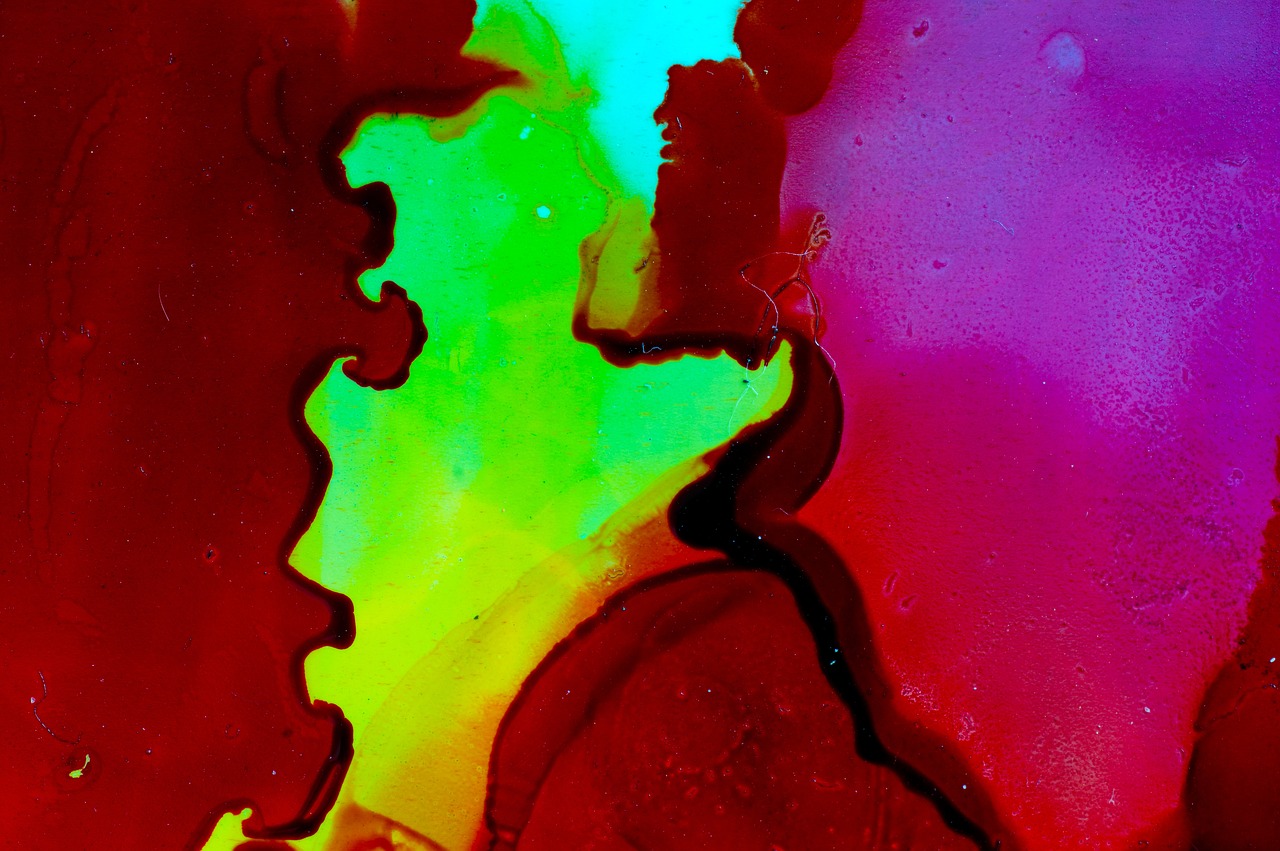
Intuition vs. Rationality
When it comes to decision-making, the interplay between intuition and rationality is a fascinating dance. Imagine standing at a crossroads, where one path is paved with cold, hard logic, while the other is a winding trail illuminated by gut feelings and spontaneous insights. Which one do you choose? This dilemma is not just a personal struggle; it’s a philosophical and scientific debate that has persisted through the ages. While intuition often provides a quick, almost instinctual response, rationality calls for a more deliberate, analytical approach. So, how do these two forces coexist?
At their core, intuition and rationality serve different purposes. Intuition is like a seasoned guide, drawing from a wealth of past experiences and subconscious knowledge, often leading us to conclusions before we even realize it. On the other hand, rationality is the meticulous architect, constructing arguments and theories based on evidence and logical reasoning. Both modes of thought have their strengths and limitations, and understanding their relationship can significantly enhance our decision-making capabilities.
For instance, in fields such as ethics and policy-making, the balance between these approaches is crucial. Here, intuitive responses can provide immediate emotional insights, helping to gauge public sentiment and moral considerations. However, without the grounding of rational analysis, these intuitive insights might lead to hasty or biased decisions. Conversely, a purely rational approach can sometimes overlook the human element, leading to decisions that, while logically sound, lack empathy or fail to resonate with people’s feelings.
To illustrate the balance between intuition and rationality, consider the following table that outlines their characteristics:
| Aspect | Intuition | Rationality |
|---|---|---|
| Speed of Decision | Quick and instinctual | Slow and deliberate |
| Basis of Thought | Emotional and experiential | Logical and evidence-based |
| Flexibility | Adaptive to new situations | Rigid and structured |
| Risk of Bias | High | Lower, but possible |
As we navigate life’s complexities, recognizing when to trust our intuition and when to lean on rational analysis is essential. This understanding allows us to make more informed choices, blending the heart and the head. For instance, in business, a leader might rely on intuition to sense market trends, while also employing rationality to analyze data and forecast outcomes. This dual approach not only enriches the decision-making process but also fosters a more holistic understanding of the challenges at hand.
Ultimately, the relationship between intuition and rationality is not a battle; rather, it’s a partnership. By acknowledging the strengths of both, we can cultivate a more nuanced approach to problem-solving. In doing so, we can enhance our ability to navigate the intricate tapestry of life, making decisions that are not only smart but also deeply resonant with our values and experiences.
- What is the difference between intuition and rationality? Intuition is a quick, instinctual response based on past experiences, while rationality involves logical reasoning and analysis.
- Can intuition be trusted in decision-making? While intuition can provide valuable insights, it should be balanced with rational analysis to avoid biases and hasty conclusions.
- How can I improve my decision-making skills? Practice integrating both intuitive insights and rational thought processes, and reflect on past decisions to learn from your experiences.
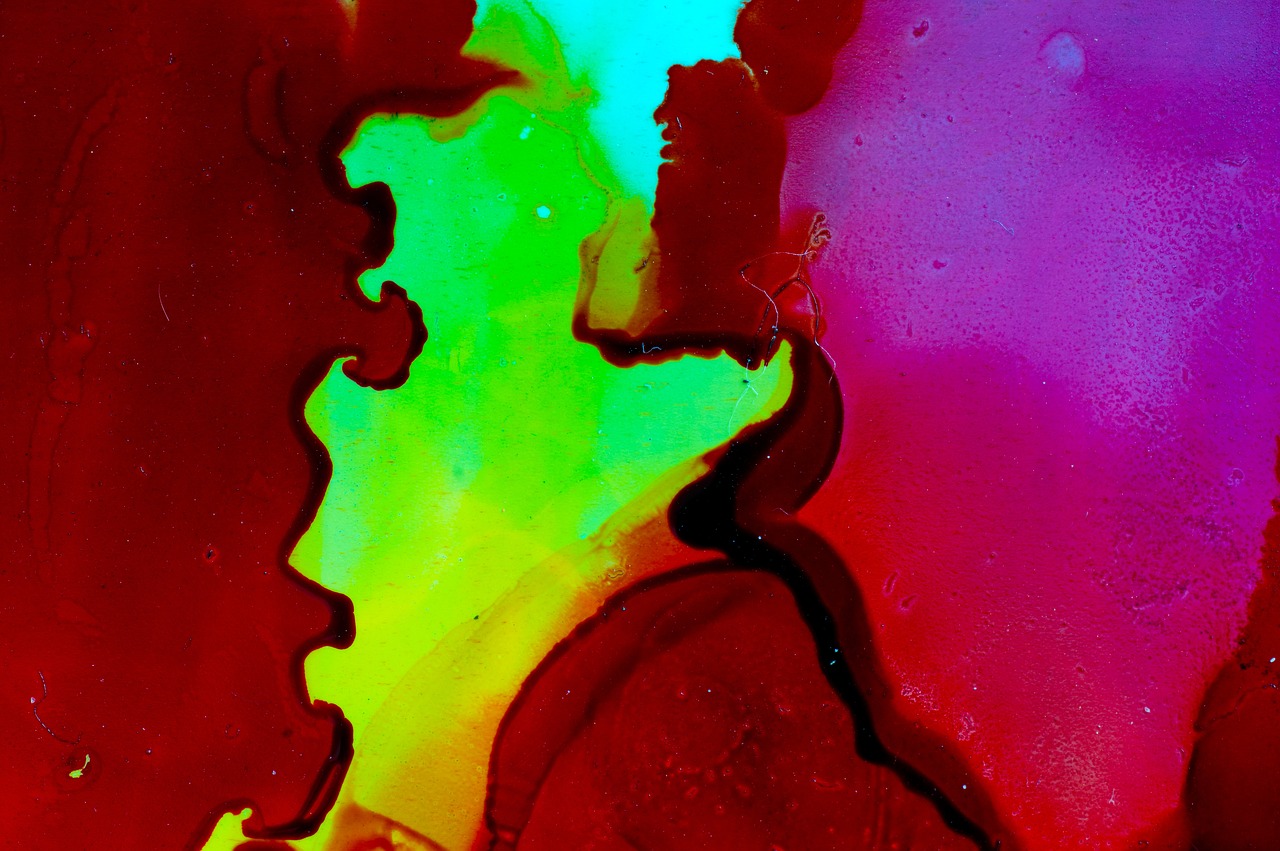
The Balance of Intuition and Logic
Finding the right balance between intuition and logic is akin to walking a tightrope; one misstep can lead to a fall into the abyss of poor decision-making. In our daily lives, we often face situations where we must rely on both intuitive feelings and logical reasoning. But how do we know when to trust our gut and when to pull out the calculator? This delicate dance between the two can significantly impact not just personal choices, but also broader societal decisions.
Intuition, with its immediate insights and gut feelings, can often provide a quick response in situations where time is of the essence. For instance, a doctor may rely on their intuition to make a fast diagnosis based on years of experience and an innate understanding of symptoms. However, this is where the interplay with logic becomes essential. Logic provides a framework for verifying those intuitive insights through systematic analysis and evidence. Without this verification, intuitive decisions can lead to errors, especially in high-stakes environments like medicine, law, or finance.
So, how do we effectively integrate intuition and logic? Here are a few strategies that can help:
- Reflect on Past Experiences: Consider previous situations where intuition led to success or failure. Understanding these patterns can help in making better decisions in the future.
- Seek Diverse Perspectives: Engaging with others who may have different viewpoints can enrich your understanding and either validate or challenge your intuitive feelings.
- Establish Clear Criteria: When making decisions, outline specific criteria that both intuitive and logical assessments must meet. This can help in creating a balanced approach.
It's also crucial to recognize that the balance between intuition and logic can vary depending on the context. In creative fields, for instance, intuition might take the lead, guiding artists and writers to explore uncharted territories. Conversely, in scientific research, logic often reigns supreme, demanding rigorous testing and validation of hypotheses. However, even in science, intuition can spark innovative ideas that lead to groundbreaking discoveries.
Ultimately, the key lies in understanding that both intuition and logic have their places in our decision-making toolkit. By cultivating awareness of when to lean into our gut feelings and when to engage in analytical thinking, we can enhance our decision-making capabilities. This balanced approach not only fosters personal growth but also contributes to more thoughtful and effective outcomes in our communities and workplaces.
- Can intuition be trusted in decision-making?
While intuition can provide valuable insights, it should be complemented with logical reasoning to ensure well-rounded decisions. - How can I improve my intuitive skills?
Practice mindfulness and reflect on your past decisions to better understand your intuitive responses. - Is logic always superior to intuition?
Not necessarily; both have their strengths and weaknesses, and their effectiveness often depends on the context of the decision.
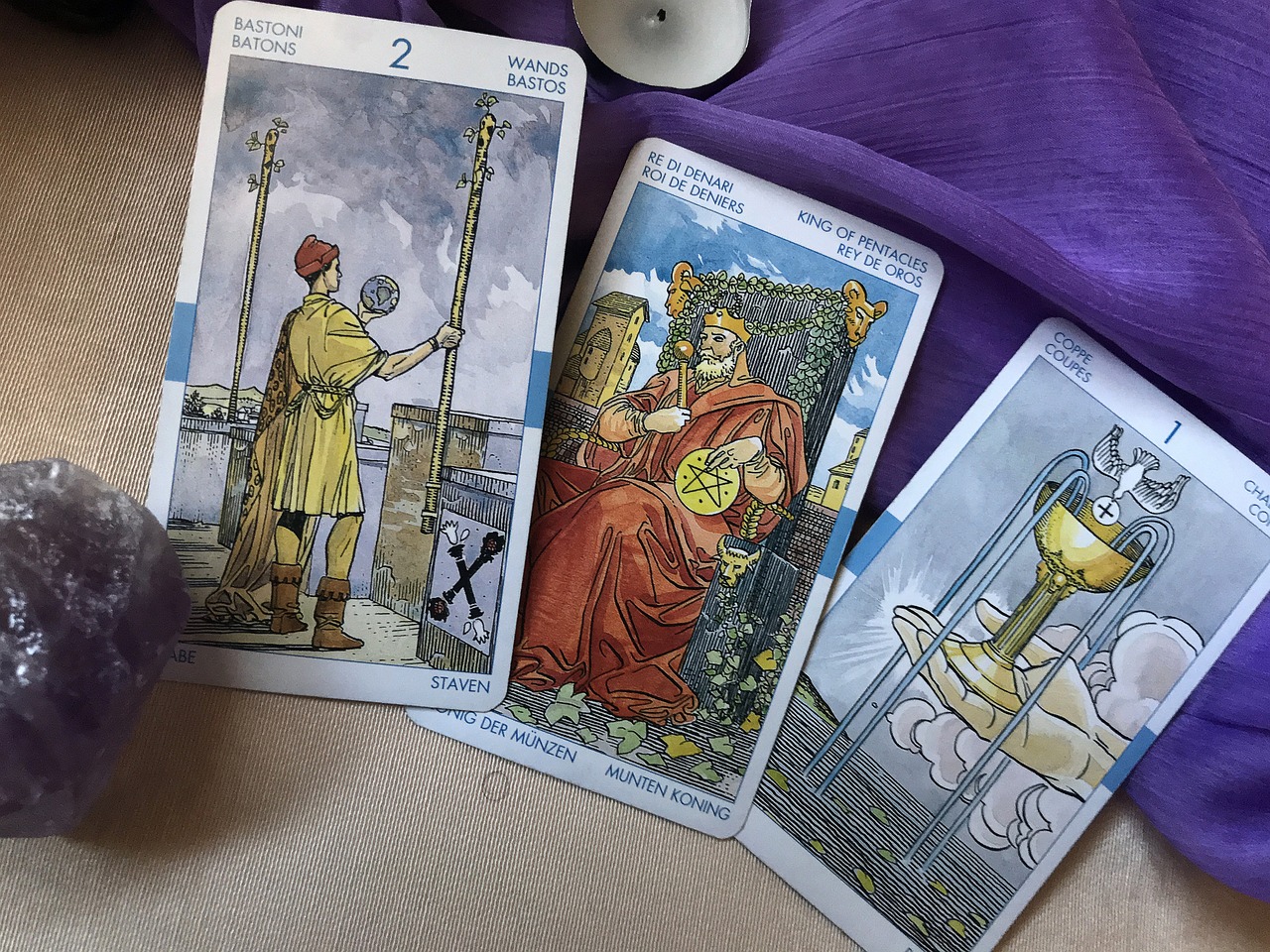
Implications for Decision-Making
When it comes to decision-making, the interplay between intuition and rationality plays a pivotal role. Have you ever found yourself in a situation where you just "knew" the right choice to make, even without all the facts laid out in front of you? That’s your intuition kicking in! It’s fascinating how our gut feelings can guide us, but it’s equally important to recognize when to lean on logical reasoning. Striking the right balance between these two modes of thought can significantly enhance our decision-making processes.
In various fields, including business, healthcare, and policy-making, the implications of understanding intuition versus rationality are profound. For instance, in the fast-paced world of business, leaders often rely on their instincts to make quick decisions that can have far-reaching consequences. Yet, without the backing of data and analysis, these decisions can sometimes lead to unexpected pitfalls. This duality is crucial; it’s not just about making a choice but making an informed choice.
Consider the following scenarios where intuition and rationality converge:
| Field | Intuition's Role | Rationality's Contribution |
|---|---|---|
| Business | Quick decision-making based on experience | Data analysis and market research |
| Healthcare | Intuitive diagnosis from experienced practitioners | Evidence-based treatment protocols |
| Policy-Making | Understanding public sentiment and moral implications | Statistical analysis and impact assessments |
Moreover, the implications extend to personal life decisions as well. Think about the last time you had to make a big life choice—like moving to a new city or changing careers. Your intuition might have nudged you in one direction, but rational analysis of the pros and cons likely played a significant role in solidifying that choice. This interplay can be likened to navigating a ship; while intuition may help steer the ship through uncharted waters, rationality provides the navigational charts that help avoid potential storms.
Ultimately, understanding how to harness both intuition and rationality can lead to more effective decision-making. It’s about knowing when to trust your gut and when to delve into the data. By recognizing the strengths and limitations of each approach, individuals can make decisions that are not only instinctively satisfying but also logically sound.
As we continue to explore the implications of intuition and rationality, it’s essential to ask ourselves: How can we better integrate these two modes of thought into our daily lives? The answer lies in practice and awareness, continually refining our approach to decision-making.
- What is intuition? Intuition is the ability to understand something instinctively, without the need for conscious reasoning.
- How does intuition influence decision-making? Intuition helps in making quick decisions based on feelings or experiences, while rationality provides a structured approach using data and analysis.
- Can intuition be trusted in important decisions? While intuition can be valuable, it should ideally be balanced with rational thought to ensure well-informed choices.
- What are some examples of fields where intuition is important? Fields such as business, healthcare, and policy-making often rely on a mix of intuitive insights and rational analysis.
Frequently Asked Questions
- What is intuition, and how does it differ from rational thought?
Intuition is often described as an immediate understanding or insight that arises without the need for conscious reasoning. Unlike rational thought, which relies on logical analysis and evidence, intuition provides quick, gut-feeling responses that can sometimes lead to profound insights. Think of it like a compass that guides you through the fog, while rational thought is the map you consult for detailed directions.
- How have historical figures contributed to our understanding of intuition?
Throughout history, philosophers such as Plato and Aristotle have greatly influenced our understanding of intuition. Plato viewed intuition as a means to access higher truths through his Theory of Forms, suggesting that intuitive knowledge transcends empirical evidence. Conversely, Aristotle emphasized the importance of empirical observation, arguing that intuition has its limitations. These contrasting views have shaped philosophical discourse and continue to inform debates today.
- Can intuition play a role in scientific discovery?
Absolutely! While the scientific method prioritizes empirical evidence, intuition can be incredibly valuable in the initial stages of hypothesis formation. Many groundbreaking discoveries have emerged from intuitive insights, where scientists had a 'eureka' moment that led them to explore new avenues. However, it's crucial to balance these intuitive leaps with rigorous testing and validation to ensure scientific accuracy.
- What are the limitations of relying on intuition in science?
While intuition can spark innovative ideas, it also has its pitfalls. Over-reliance on intuition may lead to cognitive biases or unfounded assumptions, potentially skewing research outcomes. It's essential for scientists to remain critical and validate their intuitive insights through empirical evidence to avoid drawing incorrect conclusions.
- How can one balance intuition and rationality in decision-making?
Finding a balance between intuition and rationality is key to effective decision-making. One strategy is to use intuition to generate ideas and hypotheses, then apply logical reasoning to evaluate and refine those ideas. This way, you harness the strengths of both approaches, much like using both your heart and your head when making important choices.
- What implications does the interplay of intuition and rationality have for ethics and policy-making?
The dynamics between intuition and rationality can significantly impact ethical decision-making and policy formulation. Understanding these dynamics allows decision-makers to consider both emotional and logical perspectives, leading to more well-rounded and effective outcomes. It's like blending the warmth of human experience with the precision of analytical thought to create policies that are both compassionate and practical.

